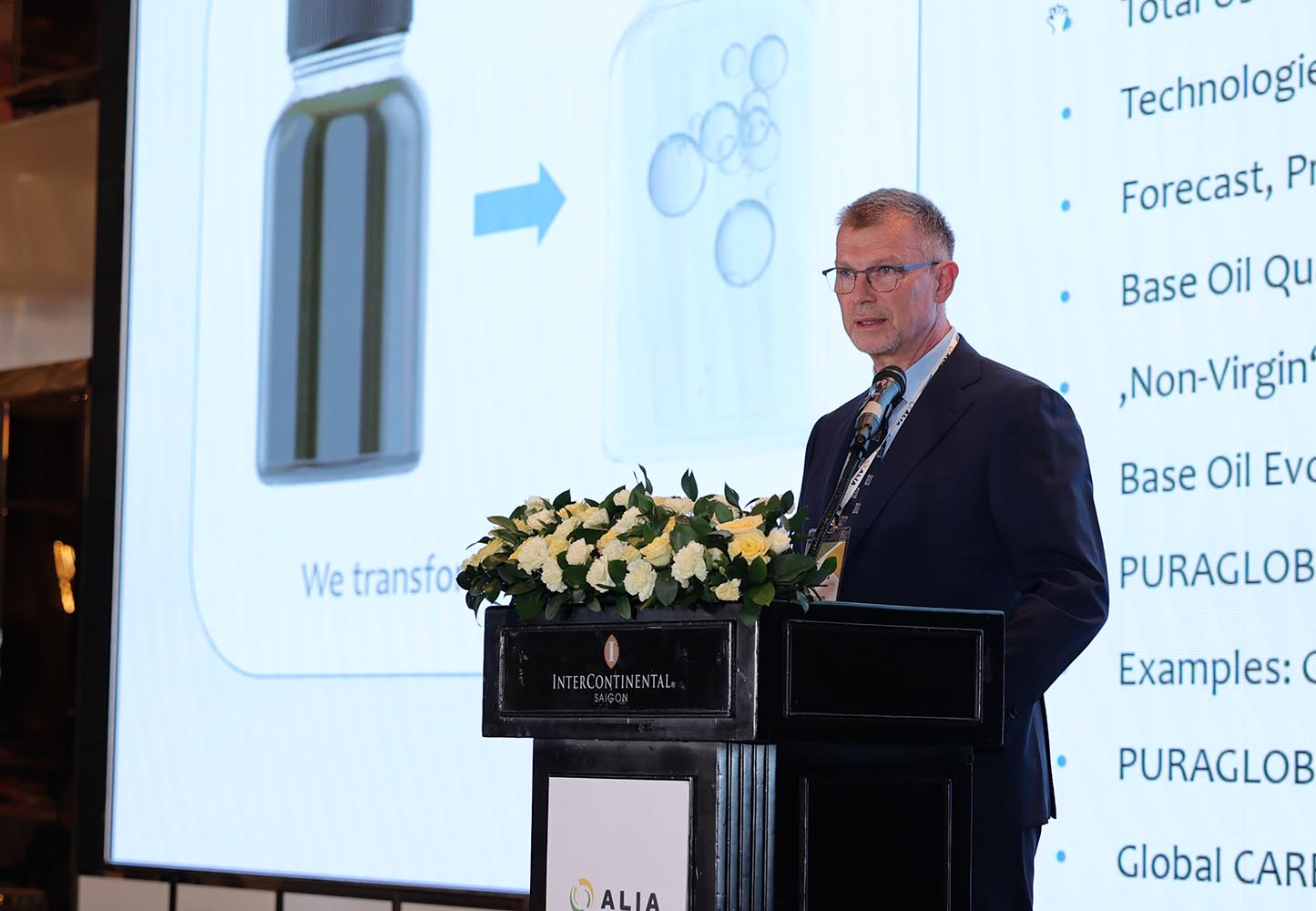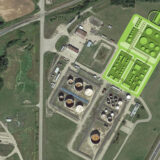
Group III RRBO capacity will double within the next 12 years
The global lubricants market, estimated to be between 35 and 40 million tons per year, is undergoing a transformative shift towards high-quality lubricants, leading to increased demand for API Group III base oils.
Currently, only a small portion of used oils are re-refined into base oils. Over the past decades, re-refining technology has evolved significantly, offering several upgrade options for used oil vacuum gas oil (VGO). This advancement has enabled the production of high-quality, high-performance re-refined base oils (RRBO) of Group II and Group III quality. PURAGLOBE currently stands out as the world’s only “non-virgin” producer of API Group III base oils.
Speaking at the ALIA Annual Meeting in Ho Chi Minh City, Vietnam, on March 6, 2024, Andreas Schueppel, CEO of PURAGLOBE, projected that Group III re-refined base oil capacity will double within the next 12 years.
The key elements of base stock for high-performance engine oils include a high viscosity index, good low-temperature viscometrics, low volatility, high saturates, low sulfur, bright and clear, water and contaminant-free, and quality consistency. According to Schueppel, all of these can be achieved with a re-refined base stock.
PURAGLOBE was the first producer of a variety of fully sustainable, fully synthetic finished lubricants like 0W-20 for the automotive industry. Schueppel informed ALIA delegates that they are working with additive suppliers to develop OW-16 and plans for producing OW-8 viscosity grades.
Dr. H. Ernest Henderson, president of K&E Petroleum Consulting, LLC, also addressed the ALIA event, stating that nearly 60% of re-refined base stock production now meets Group II and Group III quality standards. Henderson emphasized that this trend is expected to continue with improved feed quality and process technologies.
Henderson noted the importance of feedstock collection in advancing the industry. “What you collect is what you produce,” he says. With used oil collected from various sources and locations, the variability makes initial feed assessment critical. Henderson highlighted the significance of mapping out technology consistent with regional feedstock availability.
Schueppel discussed the broad opportunities for RRBO in Asia and the need for development in markets where the collection of used motor oils is already established. Additionally, he underscored the importance of demonstrating feedstock availability and off-take agreements in securing financing for new RRBO projects.












